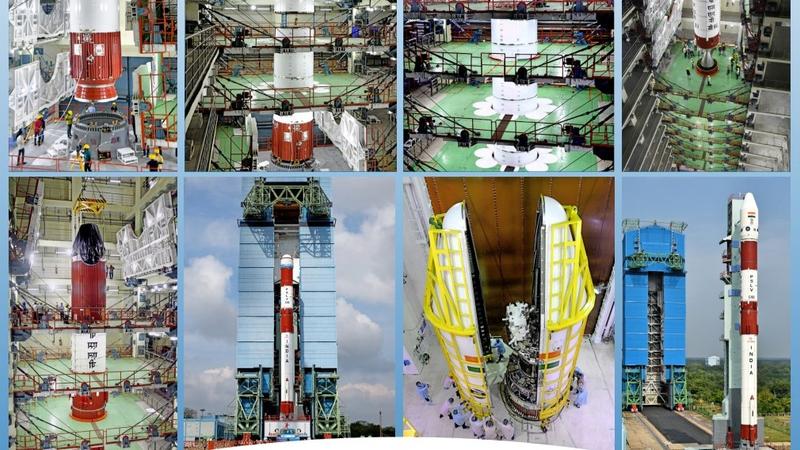Published 08:41 IST, December 30th 2024
ISRO to Launch Its SpaDeX Mission Today: Here's All You Need to Know
ISRO is all set to launch its ambitious year-end mission, the "Space Docking Experiment" (SpaDeX), today, Monday, at 9:58 PM.

New Delhi: The Indian Space Research Organisation ( ISRO ) is all set to launch its ambitious year-end mission, the "Space Docking Experiment" (SpaDeX), today, Monday, at 9:58 PM from the Satish Dhawan Space Centre (SDSC) SHAR in Sriharikota, Andhra Pradesh. The mission will use the PSLV-C60.
The space agency will launch two small satellites for its Space Docking Experiment (SpaDeX) atop the Polar Satellite Launch Vehicle (PSLV).
Mission's Objective
The primary objective of the SpaDeX mission is to develop and demonstrate the technology needed for the rendezvous, docking, and undocking of two small spacecraft (SDX01, the Chaser, and SDX02, the Target) in a low-Earth circular orbit.
"In addition, SpaDeX, because of its small size and mass, is even more challenging due to the finer precision required for the rendezvous and docking maneuvers compared to docking two large spacecraft. This mission will serve as a precursor for autonomous docking needed for future lunar missions, such as Chandrayaan-4, without relying on GNSS from Earth," ISRO said in a statement.
Currently, only three countries—the United States, Russia, and China have the capability to dock two spacecraft in outer space. With this mission, India aims to become the fourth country in the world to possess space docking technology.
What is Docking?
Docking refers to the process of aligning and physically connecting two spacecraft, such as satellites, in space.
The two satellites, SDX01 (Chaser) and SDX02 (Target), will orbit the Earth at an altitude of 470 km, following a circular trajectory with an inclination of 55°. Initially, the satellites will be in close proximity, but over a 24-hour period, they will gradually drift apart.
Like all ISRO satellites in low-Earth orbit, both SpaDeX spacecraft carry a differential GNSS-based Satellite Positioning System (SPS), which provides Position, Navigation, and Timing (PNT) solutions for the satellites.
"In SpaDeX, a novel RODP processor is included in the SPS receiver, which allows for accurate determination of the relative position and velocity of the Chaser and the Target. By subtracting the carrier phase measurements from the same GNSS satellites in both Chaser and Target SPS receivers, highly accurate relative states of the two satellites are determined. The VHF/UHF transceivers in both satellites assist this process by transferring the GNSS satellite measurements from one satellite to the other. Hardware and software test beds, including closed-loop verifications, were conducted to characterize the RODP performance," the statement said.
The SpaDeX spacecraft were designed and developed by the UR Rao Satellite Centre (URSC) with support from other ISRO centers (VSSC, LPSC, SAC, IISU, and LEOS). The spacecraft, in its orbital phase, will be controlled from ISTRAC using ISRO ground stations and other externally hired ground stations.
"The full integration and testing of the satellites were carried out at M/s Ananth Technologies, Bangalore, under the supervision of URSC. After completing all tests and clearances, the spacecraft has moved from URSC to SDSC and is undergoing final preparations for launch," the statement added.
Far Rendezvous
The Target spacecraft's propulsion system will prevent the satellites from drifting apart and maintain a distance of 20 km between them, a process known as Far Rendezvous.
Subsequently, the Chaser spacecraft will gradually approach the Target, reducing the distance between them to 5 km, 1.5 km, 500 m, 225 m, 15 m, and finally 3 m, leading to their docking.
When and Where to Watch
The launch will be streamed live by the space agency, and you can watch it on YouTube. The broadcast is expected to begin at 11 AM EST (1600 GMT).
(Inputs from ANI)
Updated 08:46 IST, December 30th 2024



